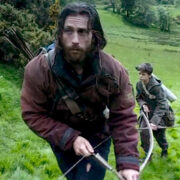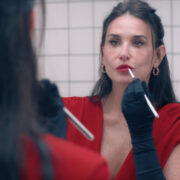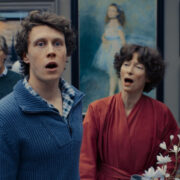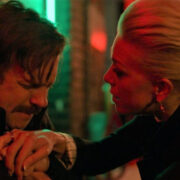The Value Of Community In Filmmaking: Filming DEAD CERTAIN
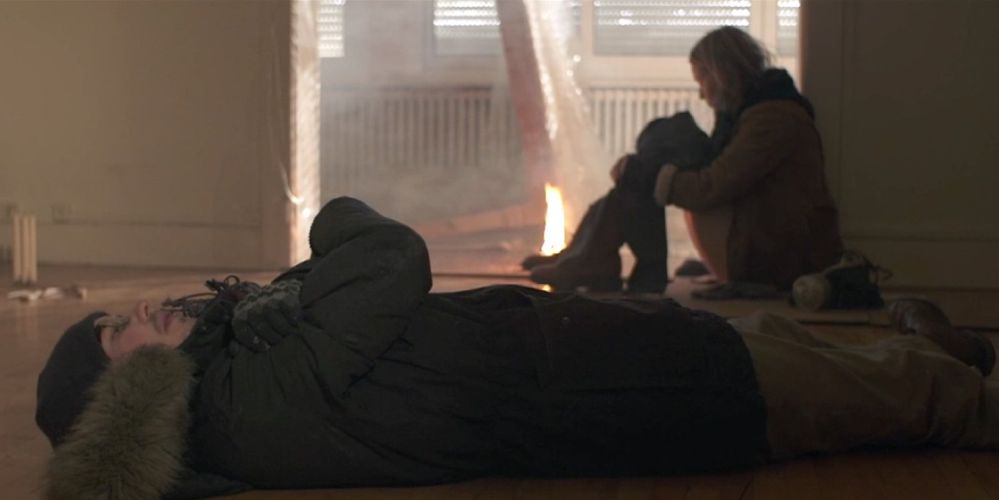
All articles contributed by people outside of our team are…
We shot Dead Certain in the French Alps during seventeen intense days in the winter of 2014. A post-epidemic thriller, we wanted the film to feel desolate and lonely. The quaint town of Monnetier-Mornex offered a perfect setting: an eerily empty town with the vast Alps as a backdrop. Or so it seemed.
In real life, the town itself was anything but lifeless and took a keen interest in the film. Without the community of Monnetier-Mornex, the film would never have gotten off the ground in the first place.
One of the key strategies of low-budget filmmaking is to work with what you have already. That usually means your parents’ house, a relative’s car, and basically everything your friends own. But we didn’t want to shoot an end-of the world thriller entirely set in someone’s backyard. Our script was ambitious and asked for things we simply did not have.
Luckily, we found that by including the community, we expanded what we had, adding local knowledge, connections and resources to our (limited) capital and giving our film the scope it needed. From casting and resources through to promotion – the local community became key to the project’s success. We’ve outlined some examples of the main benefits of involving the community in our project below.
Inevitably, it might not work everywhere for every project but we hope we can use the lessons learnt in future shoots.
Casting and Crew
Before we even had a script, we made friends with Les Joyeux Lurons, a local theatre group. The group had a great interest in what we wanted to do and were also very well connected to the local community (their director owns the only pub in town…enough said). After we had met with them, pretty much everyone knew who we were and what we wanted to do.
The group happily helped us with casting, providing two supporting actors as well as an intern (who ended up being our producer). We were also put in touch with Julien Caplan, a towering Frenchman and avid theatre performer. He turned out to be perfect for the role of our sledgehammer wielding villain.
Locations
Our intern-turned-producer basically ran the show; she knew the town and residents far better than all of us (she was also related to two of our cast). She found our only significant location change – a hunting cabin in the woods that belonged to family friends who happily gave us permission to shoot there.
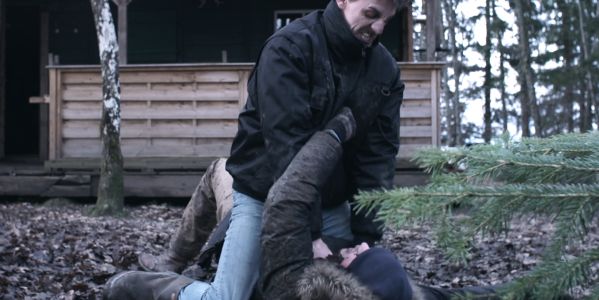
Things we didn’t even know we wanted
In the initial script, the movie opens with a dog roaming an abandoned town. Some people heard about this and decided a horse would be better. They also decided it was perfectly fine to shut off the sections of the road we were filming in without a permit. When locals were held up by our impromptu horse shoot, they simply waited and had a little chat with the owner of the horse. Not a single complaint!
Promotion and audience
Thanks to the incredible support from the community, the council has kindly offered to do a showing of the film in the town hall in late August. A free screening venue for us to show our film! For a low-budget film with close to no marketing budget, that is a major win.
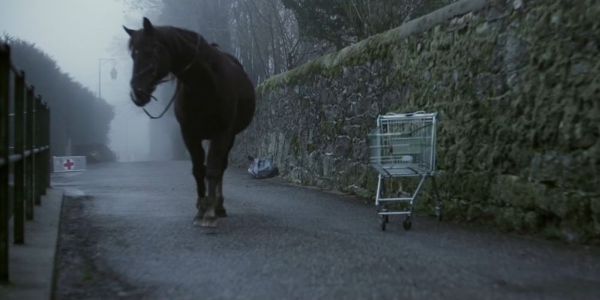
Alongside the screening, the local council has organised flyers advertising the event, placed an add in the local culture magazine, and is hosting a month long exhibition on the making of Dead Certain.
Finally, being so well connected to the local community means that we have an automatic audience of 2,000 people, eager to see a film shot in their hometown. Come August, we will have a packed cinema, something low-budget films can have trouble pulling off (you only have so many friends and family members).
Community
Above all, the best part of creating Dead Certain has been the incredible people we’ve met. We had limited catering, time and money but that didn’t seem to matter. Candice, our Villain’s wife, baked us a cake every time our favourite bad guy was on set and threw amazing dinner parties for our cast and crew. It was things like this that kept the team in high spirits and as a result the atmosphere of the shoot was amazing.
We were able to give our cast and crew three weeks in the French Alps with delicious food (so much cheese), wine, and the opportunity to make friends with people they would never have met otherwise.
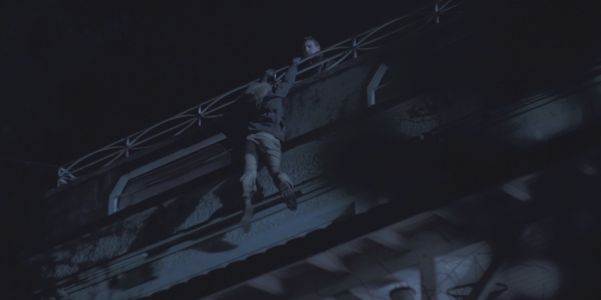
We like to think this made up for the fact that the cast and crew were overworked and underpaid. The community as a whole, our cast and crew included, now feel a real sense of ownership of the film because we made it together. Apart from that, there was also broader support for the project from the town. Residents put up with us, our crazy hours and our sometimes bizarre behaviour.
Thanks Monnetier-Mornex for never questioning why a guy was hanging from a third floor balcony in the middle of the night – it means a lot to us.
To our filmmaker readers: how have you involved local communities in your filmmaking endeavors? Share your thoughts below.
Dead Certain is the feature debut from director Hendrik Faller currently in post-production. The film will be showing at the end of August in an avant-premiere in the French town of Monnetier-Mornex where it was shot in 2014. Set after a deadly epidemic, the thriller is about human nature in a time of crisis.
https://vimeo.com/178827300
Hendrik Faller is a filmmaker interested in human behaviour in times of crisis. He wrote and directed Dead Certain, an epidemic thriller set in the French Alps. He lives and works in London and has worked with several well known brands including Vice and is currently editing a documentary for well known Iranian journalist Maziar Bahari.
Find Hendrik on Twitter, @HendrikFaller and his website. Find Dead Certain on the film’s website, @DeadCertainFilm on Twitter, and Facebook.
Become a Member and support film journalism. Unlock access to all of Film Inquiry`s great articles. Join a community of like-minded readers who are passionate about cinema - get access to our private members Network, give back to independent filmmakers, and more.
All articles contributed by people outside of our team are published through our editorial staff account.
